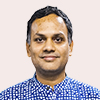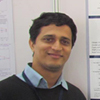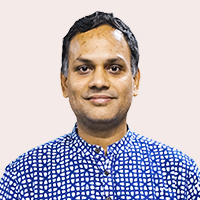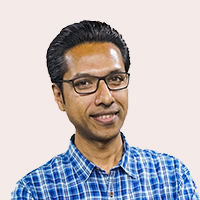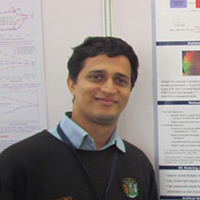|
WEEK 1
|
Introduction,Miniaturization of electronic packaging,Mobile teardown,How small can a mobile phone get?,The battery,The charger,Back of the envelope calculations,The resistor,The Theory.
|
|
WEEK 2
|
Introduction to "Voltage",Introduction to "Current" and Ohms Law,Series and parallel connection of voltage and current sources,I-V characteristics of Resistors, voltage and current sources,Nodal Analysis and KCL,Mesh Analysis and KVL,Measurement of simple resistive circuit,Series and parallel connection of resistors,Introduction to capacitors, Introduction to inductors,Capacitance and Inductance measurement
|
|
WEEK 3
|
Dial, Talk and Hear,The Microphone,Motor and Generator,The Sinusoid,Energy of time varying signals,Harmonics,Electricity consumption at home
|
|
WEEK 4
|
Problem Solving - Getting Started,Problem Solving - Lower and upper bounds ,Problem Solving - More Complex Problems,Problem Solving - Resistive Ladder,Problem Solving - Wheatstone's bridge,Problem Solving - Resistive Cube
|
|
WEEK 5
|
Analog Mixer,Resistive Analog Mixer,Analog Mixer : Simulation,Superposition principle,Analog Mixer using superposition,Linear electrical components,Series and parallel resistive networks,Numerical examples on superposition
|
|
WEEK 6
|
The Non-Inverting Amplifier,The Inverting Amplifier,Power Conventions ,The RC Step Response - Experiment,The RC Step Response - Theory
|
|
WEEK 7
|
Low Pass Filter - Experiment,Low Pass Filter - Theory,High Pass Filter - Analysis,High Pass Filter - Experiment,Band Pass Filter -Design,Band Pass Filter -Experiment,First order analysis: Limitations
|
|
WEEK 8
|
Problem Solving - Resistive Analog Mixer ,Problem Solving - Resistive Analog Mixer using superposition,Problem Solving - Superposition - Voltage sources,Problem Solving - Homogeneity Principle,Problem Solving - Power absorbed by circuit elements ,Problem Solving- Superposition - Current / Voltage sources -1,Problem Solving- Superposition - Current / Voltage sources - 2
|
|
WEEK 9
|
Analog vs Digital Audio Representations,Time Quantization,Amplitude Quantization,Sample and Hold Circuit,Flash ADC,Charge Sharing,Switched Capacitors,Capacitive Mixer
|
|
WEEK 10
|
Laptop Teardown, Binary Number System, Decimal to Binary Number Conversion, Calculating Wave File Size, Analog vs Digital Computing, Digital Compute Blocks, Lab Instructions - 1
|
|
WEEK 11
|
Wired Communication - The Experiment,Wired Communication - Inductive Ringing,Wired Communication - Summary,Wireless Communication - The Radio,Wireless Communication - Modulation Techniques,Wireless Communication - Amplitude Modulation,Wireless Communication - Frequency Modulation,Wireless Communication - The Antenna
|
|
WEEK 12
|
Problem Solving - LPF Energy,Problem Solving - Current Source and Capacitors,Problem Solving - Current Source, Capacitors, and Resistors,Problem Solving - Switched Capacitors,Problem Solving - Voltage source and Capacitor,Problem Solving - Voltage source, Current source, and Capacitor,Problem Solving - Current sources and Capacitor,,Course Summary
|
